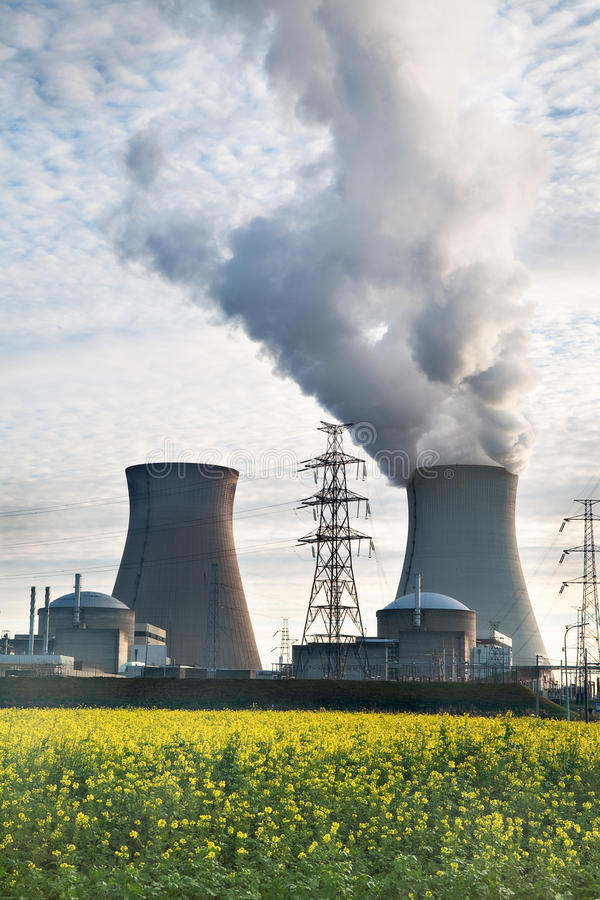The construction process for the nuclear power reactor, Plant Vogtle, has been anything but simple. The building of Plant Vogtle has become controversial for both businesses involved and Georgia ratepayers, as both the cost and time of the project have been extended on multiple occasions. However, the utilities involved officially decided to continue construction of Plant Vogtle upon the agreement of a cost cap, saying that the benefits of nuclear power will one day outweigh the costs of its construction.
In 2013, Georgia Power, Oglethorpe Power, Municipal Electric Authority of Georgia (MEGA), and Dalton Utilities agreed to the construction of power reactor units three and four. The construction of unit three began on March 12, 2013 and unit four began on November 19, 2013. The reactor units were utilizing AP 1000 reactors from Westinghouse, which is a U.S. based nuclear power company offering construction, products, and other services to utilities around the world. Initially, units three and four were estimated to have a cost of $4.418 billion and were to be completed in 2016 and 2018. Within the first three months of unit three being built, however, the project was already delayed by 14 months. In the 17th Semi-Annual Vogtle Construction Monitoring Report released in 2017, the new price estimate of the project had escalated to $8.77 billion dollars.
Along with the rising costs and extended time table for the project, Westinghouse was forced to file bankruptcy in 2017 for its net loss of nine billion dollars from construction projects, including both Vogtle itself and the failed nuclear reactor V.C. Summer in South Carolina. This caused Georgia Power and the other utility providers involved to hire a different construction company, once again prolonging the project. At this point, the utilities began to grow doubtful of the plant’s success, particularly Oglethorpe Power and MEGA. MEGA was the first company reluctant to continue with Plant Vogtle, as it became discouraged by Jacksonville Energy Authority’s (JEA) interim CEO, Aaron Zahn. In the initial construction phases of units three and four, JEA agreed with MEGA to buy power from the not-yet-constructed reactor. However, with the increasing costs, Zahn claimed the Plant Vogtle project was now “economically obsolete” on the grounds that JEA would now be obligated to pay four billion over the next two decades. Eventually, JEA decided to go ahead with the project in order to avoid any losses associated with previous investments.
Oglethorpe Power was also hesitant to continue with Plant Vogtle after the $2.3 billion increase in costs in August 2018. Oglethorpe voiced its concerns to Georgia Power and stated that it would only continue to support the project if a price cap was established. If Oglethorpe failed to support the project, the company would still have to pay its already-borrowed federal loans, but would now only have five years instead of twenty to pay them off. Due to these circumstances, all four utilities were able to agree on a price cap, allowing Plant Vogtle to move forward with construction.
Plant Vogtle has been a complex undertaking, providing benefits as well as drawbacks. First, it is important to note why Georgia Power was so fervent about the construction of units three and four in the first place. Nuclear energy represents the future of energy production, as some argue it is much more environmentally feasible than traditional coal-burning plants. Also, when nuclear reactors are well-kept, they are estimated to be capable of producing energy for eighty years, which is an enormously beneficial payoff when compared to other forms of energy. Nuclear energy is also the most efficient form of energy, as Plant Vogtle itself would bring power to hundreds of homes and companies throughout Georgia.
Along with the benefits of nuclear power, there are three key incentives that support claims as to why Plant Vogtle should continue to be built. First, the construction of the plant has brought about 5,000 jobs to the areas in and around Waynesboro. Not only has this increased the employment rate, but it also attracts investment to the more rural areas of Georgia. Second, Georgia will become particularly desirable for businesses surrounding the state and even outside the U.S. Plant Vogtle is the only power plant under construction in the U.S. and will soon offer advantages for companies looking to capitalize on the energy market. Finally, it is likely that the current administration will place carbon taxes on energy companies within the next few years. By taking the initiative to ‘go nuclear,’ Georgia companies and, thus, ratepayers will no longer be threatened by this tax.
The time and private money to build Plant Vogtle has translated into costs for Georgia ratepayers. Many people in the state are understandably concerned about what this will mean for their power bills. The effects of the project will not be represented on power bills until 2023, and will only increase by a rate of eleven percent from all overrun charges. Currently, the Georgia consumer already pays a Vogtle surcharge of about eight percent.
While Plant Vogtle has increased rates for Georgians, it has also brought job growth and outside interest to rural Georgia. There is no denying that the project has been off to a rough start, but the supporting companies have shown that they all agree it would be worse to walk away after coming so far. There are conflicting arguments as to whether or not Plant Vogtle will prove beneficial for Georgia, but only time will truly tell. For now, it is up to the people of Georgia to decide.
